
STEREOTYPY FACTORS
STEREOTYPICAL behaviours or “stable vices” have been recognised in domesticated horses for centuries. They include crib-biting, windsucking, weaving, box walking and box wall kicking.
Brazilian behaviorists recently analysed all the peer-reviewed research into the development of stereotypies published in English, Spanish and Portuguese, and compared the findings and conclusions. This kind of study is a “meta analysis”; it is valuable because it draws together accumulated knowledge on a given subject. The scientific literature includes the study of nearly 19,000 horses from 1998 to 2020.
The meta-analysis reveals no consensus about many of the factors thought to contribute to stable vices. Some papers point to a genetic or breed predisposition; others appear to disprove this. Some studies indicate increased problems in colts and geldings, others the opposite. Even the reported prevalence of stereotypic behaviour among equines is not consistent, with some studies claiming that about 3% of leisure and sports horses show such behaviours, and a figure of up to 60% in others.
This story is from the {{IssueName}} edition of {{MagazineName}}.
Start your 7-day Magzter GOLD free trial to access thousands of curated premium stories, and 9,000+ magazines and newspapers.
Already a subscriber ? Sign In
This story is from the {{IssueName}} edition of {{MagazineName}}.
Start your 7-day Magzter GOLD free trial to access thousands of curated premium stories, and 9,000+ magazines and newspapers.
Already a subscriber? Sign In

'Sorry, but I wasn't feeling it'
Fresh from the opening meet, Tessa Waugh hasn't quite yet been bitten by the hunting bug. Without the crisp autumnal air and cheek-pinching cold she hoped for, it's a sluggish start
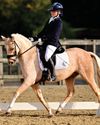
New pair pull off a win
A former European Championships pony is on form with his new rider, while elsewhere former showjumpers and eventers take ribbons
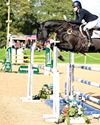
Lording it over the rest
Horses who have returned from injury, a second generation homebred and a long format specialist score on the final weekend of the British season
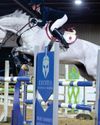
Smith hits flying form
A \"her way or no way\" mare helps Zoe Smith to an impressive ribbon haul and a rider beats his own boss to the top spot
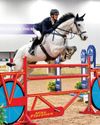
Jankorado hits the jackpot
Paul Sims is triumphant despite his interrupted jump-off preparation and a borrowed horse comes up trumps
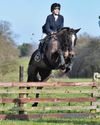
Peanut
From \"dangerous, scary\" to hedge-hopping brilliance, hunting has been the making of this unstable but very lovable equine character
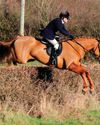
She's a corker
Communication, says long-standing and highly respected Belvoir master Lady Sarah McCorquodale, is the key to all, as Catherine Austen discovers
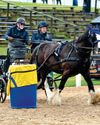
Access all areas Cavalier Centre
The Cavalier Centre is a fully accessible, state-of-the-art equestrian centre designed to improve lives through horse-based activities. Ellie May Forrester pays a visit
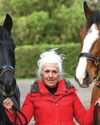
'Use it or lose it'
Not everyone wants to reach for the pipe and slippers at a certain age. Becky Murray speaks to some veteran horse-and-rider combos for their secrets of human and equine longevity
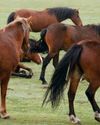
A new way forward
Worm control in horses is vital, but established methods will not remain effective for much longer. Tim Mair FRCVS explains why and how we need to change